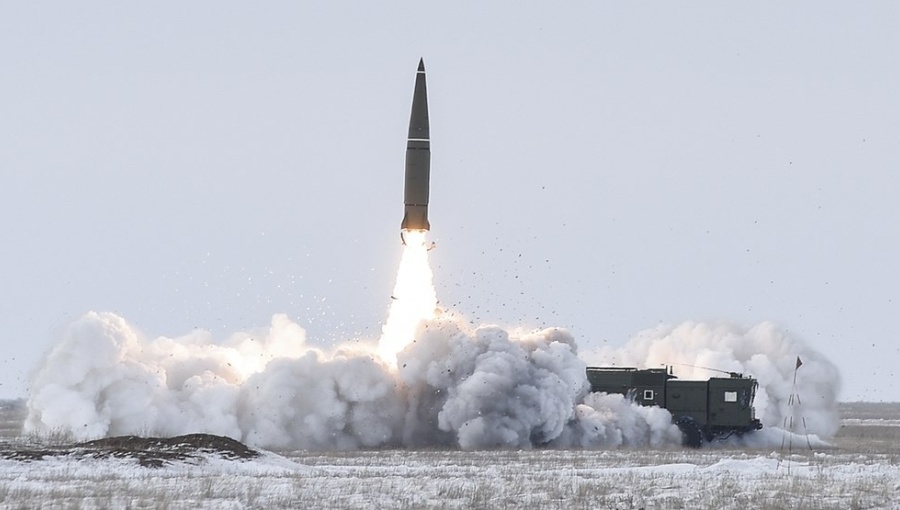Turkey equipping Moscow’s war machine, data shows

NATO member Turkey’s exports to Russia of “dual-use” goods essential for Moscow’s war machine have soared this year, heightening concerns that Ankara is turning a blind eye to a lucrative ghost trade.
While official data from Turkey show surging declarations of exports of high-priority goods to ex-Soviet nations Azerbaijan, Georgia, Kazakhstan, Kyrgyzstan and Uzbekistan, those countries’ statistical agencies have not recorded matching gains in imports. The large discrepancies indicate that items suitable for both civilian and military use listed by Turkey as consigned to intermediaries were instead transported directly to Russia, analysts cited by the Financial Times on November 27, said.
Kazakhstan, for instance, registered high-priority goods imports from Turkey of $6.1mn in the year to September—but Turkey’s data declares that such exports to Kazakhstan stood at $66mn over the same period.
“It’s obvious these goods are going to Russia,” Elina Ribakova, a senior fellow at the Peterson Institute for International Economics think tank and vice-president for foreign policy at the Kyiv School of Economics (KSE), told the FT.
Russia uses the high-priority goods in cruise missiles, combat drones and helicopters, according to US and EU defence analyses.
Since the outbreak of the war in Ukraine, Turkey has maintained amicable diplomatic and unhindered trade links with Russia, though, importantly, it has pledged to Nato allies that it will not help the Kremlin circumvent Western export controls.
Disappointed by what the trade figures are showing, the US has increasingly stepped up its warnings to Turkey that if it does not crack down on trade that helps to enable Russia’s war effort, then Washington and its partners will take assertive enforcement action.
This week, Brian Nelson, US Treasury under-secretary for terrorism and financial intelligence, will visit Istanbul and Ankara in his second trip to Turkey this year. He will discuss “efforts to prevent, disrupt, and investigate trade and financial activity that benefit the Russian effort in its war against Ukraine”.
In 9M23, Turkey reported $158mn of exports to Russia, and five former Soviet countries suspected of acting as intermediaries for Moscow, of 45 goods that the US lists as “high-priority”. The increase versus the same period of 2022, the year the war began, is around three-fold. The average figure for 2015-21 was $28mn, according to a Financial Times analysis of data from customs database Trade Data Monitor.
The goods categories include microchips, communications equipment and parts such as telescopic sights.
The data also showed Turkey’s imports of high-priority goods from G7 countries up more than 60% to nearly $500mn so far this year in comparison with the same periods between 2015 and 2021.
“The US, EU, UK and our G7 partners have made clear that we do not want any of our key partners to become places where our sanctions are circumvented,” James O’Brien, US assistant secretary of state for European and Eurasian Affairs, told reporters on November 27.
Turkey has “made it more difficult for certain items to transit … especially from the United States, but obviously there is always more to do,” he added. “It is a job that is never done. The Russians are always trying to import more. And it is important that we continue to close doors for Russia otherwise we see more events like this weekend with a very large [armed drone] attack on Kyiv.”
The Turkish foreign ministry maintains that in line with Ankara’s policy that it will not assist Russia in dodging Western sanctions, Turkey’s large financial and industrial businesses are comprehensively complying with sanctions enforcement measures on dual-use goods. However, it says that there are little-known and insignificant entities that remain uninformed about the sanctions or are indifferent to them.
No comments:
Post a Comment